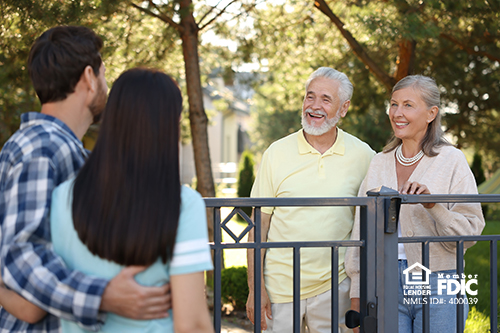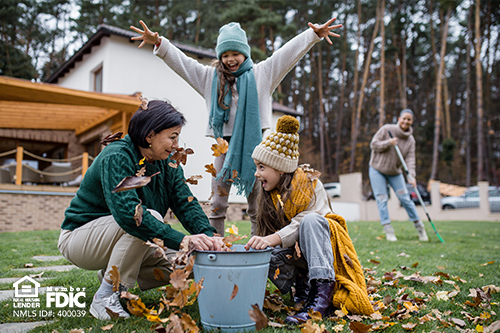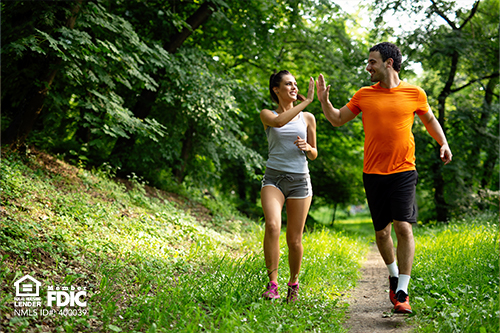September 28th is National Good Neighbor Day, created in the 1970s to connect with those around you and recognize the importance of being a good neighbor.
So, just what is being a good neighbor?
This blog will provide valuable advice on being a considerate neighbor, fostering stronger relationships and a more connected community.
Whether you're a homeowner, a renter, or a community member, these tips are for you. They help you become more involved in your community and be a better neighbor.
The Importance of Neighborly Bonds
Knowing your neighbors is not just about being sociable. It's a crucial aspect of community safety and support.
When neighbors know and trust each other, they can look out for one another. This can lead to improved neighborhood security and even increased property values. Strong neighborly bonds are beneficial for everyone in the community.
Introducing Yourself: The First Step to a Lasting Relationship
Introducing yourself when you move into a new neighborhood or when new neighbors move in is essential. This simple act of courtesy can lay the foundation for a positive relationship.
Remember, you don't have to become best friends. The goal is to establish a basic level of familiarity and respect. This can make future interactions much easier and more pleasant.
Small Acts of Kindness: Building Blocks of a Supportive Community
Small acts of kindness can go a long way in building a supportive community. These gestures show that you value your neighbors and are willing to lend a hand when needed.
For instance, you could offer to collect mail or care for pets when your neighbors are away. You could also share resources or tools to help with home projects.
Here are a few more ideas:
- Organize or participate in neighborhood events
- Offer support during difficult times
- Celebrate neighbors' successes and milestones
- Be an active listener when neighbors share concerns or stories
These actions not only help to build a strong community, but they also make your neighborhood a more enjoyable place to live.
Communication: The Heart of Neighbor Support
Effective communication is the cornerstone of good neighbor relations. It helps to prevent misunderstandings and fosters a sense of community.
Establishing transparent and open communication channels is crucial. This could be through face-to-face conversations, phone calls, emails, or neighborhood apps.
It's also vital to be proactive in addressing neighborhood issues. If you notice a safety concern or a potential hazard, don't hesitate to bring it up.
Remember, being a good neighbor means being a good listener, too. When neighbors share their concerns or stories, lend an attentive ear. It shows that you value their perspective and are willing to support them.
Respecting Boundaries and Privacy
Respecting your neighbors' privacy is fundamental to being a good neighbor. This means not intruding on their personal space or time without invitation.
At the same time, it's essential to maintain your boundaries. This could involve setting clear expectations about visits, noise levels, or the use of shared spaces. Mutual respect for privacy and boundaries can go a long way in fostering harmonious neighborhood relations.
Noise Etiquette: Keeping the Peace in Your Neighborhood
Noise can be a significant source of conflict in neighborhoods. Paying attention to your noise levels is an important tip for being a good neighbor. This is especially true in the early morning and late at night.
This includes controlling the volume of your music, television, or loud activities. Also, if you're planning a party or event that might be noisy, it's considerate to inform your neighbors in advance. This way, you can maintain a peaceful environment and avoid unnecessary disputes.
Property Maintenance: A Reflection of Community Pride
Maintaining the cleanliness and appearance of your property is another vital aspect of being a good neighbor. A well-kept home enhances your living experience and improves the neighborhood's overall appeal.
Remember, your home reflects your respect for your community. Regular maintenance, quick repairs, and a tidy yard can help build community pride and improve neighborhood relations.
Shared Spaces: Fostering a Culture of Cooperation
Shared spaces like parks, community centers, and even sidewalks are integral to a neighborhood. They provide opportunities for interaction and community building. Being mindful of and treating these areas respectfully is a good neighbor tip.
When you clean up after your pet, you keep the area clean. Avoiding littering also contributes to this effort. Additionally, it is crucial to keep your children safe while they play.
All these actions help create a culture of cooperation. Remember, these spaces belong to everyone, and your actions can set a positive example for others.
Neighborly Support During Times of Need
Life can sometimes throw curveballs, and during these times, having supportive neighbors can make a world of difference. Offering your support is an essential part of being a good neighbor. This is true during a family loss, illness, or personal crisis.
This support can take many forms. It could be as simple as offering to run errands, preparing a meal, or just lending a listening ear. Remember, a little kindness can go a long way during difficult times.
Inclusivity and Diversity: Celebrating the Unique Fabric of Your Community
A good neighbor understands and respects their community's diverse cultural practices and traditions. This understanding fosters a sense of inclusivity and mutual respect among neighbors.
We can celebrate the diversity in our neighborhood. One way to do this is through cultural exchanges or potlucks. These activities help us learn about different cultures and traditions. They enrich the community fabric and promote a sense of belonging and unity.
Encouraging Community Involvement and Volunteerism
Being a good neighbor also means being an active participant in your community. This could involve volunteering for neighborhood watch or community improvement initiatives.
Participating in local decision-making can help improve the community for everyone. This active involvement strengthens the community and fosters a sense of shared responsibility and ownership.
Being a good neighbor creates a ripple effect. Your actions can inspire others and create a community where everyone feels valued and supported. These good neighbor tips can build a stronger, more connected, and harmonious neighborhood.




